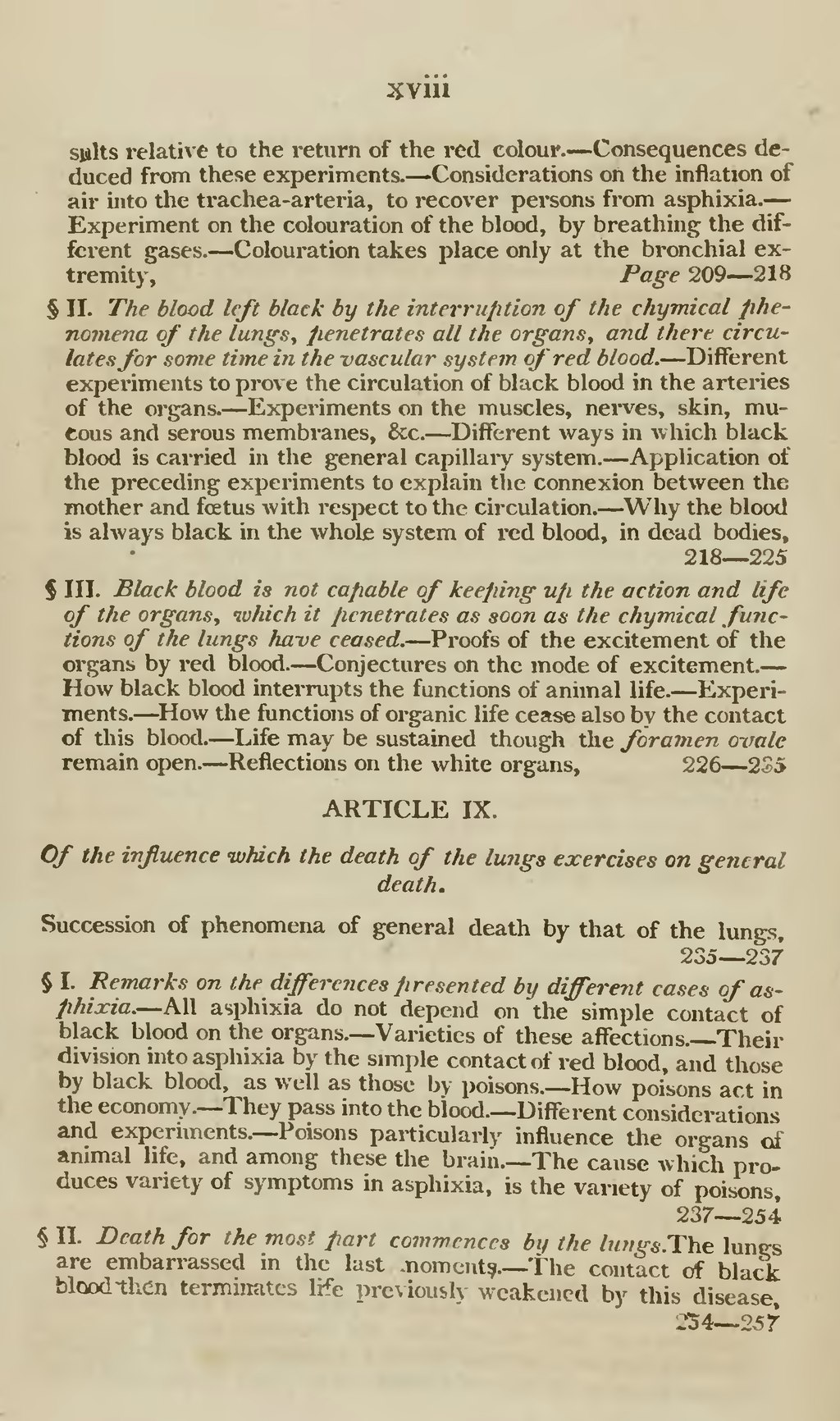xviii
| § II. The blood left black by the interruption of the chymical phenomena of the lungs, penetrates all the organs, and there circulates for some time in the vascular system of red blood.—Different experiments to prove the circulation of black blood in the arteries of the organs.—Experiments on the muscles, nerves, skin, mucous and serous membranes, &c.—Different ways in which black blood is carried in the general capillary system.—Application of the preceding experiments to explain the connexion between the mother and fœtus with respect to the circulation.—Why the blood is always black in the whole system of red blood, in dead bodies, | 218—225 | |
| § III. Black blood is not capable of keeping up the action and life of the organs, which it penetrates as soon as the chymical functions of the lungs have ceased.—Proofs of the excitement of the organs by red blood.—Conjectures on the mode of excitement.—How black blood interrupts the functions of animal life.—Experiments.—How the functions of organic life cease also by the contact of this blood.—Life may be sustained though the foramen ovale remain open.—Reflections on the white organs, | 226—2S5 | |
| ARTICLE IX. | ||
| Of the influence which the death of the lungs exercises on general death. | ||
| Succession of phenomena of general death by that of the lungs, | 235—237 | |
| § I. Remarks on the differences presented by different cases of asphixia.—All asphixia do not depend on the simple contact of black blood on the organs.—Varieties of these affections.—Their division into asphixia by the simple contact of red blood, and those by black blood, as well as those by poisons.—How poisons act in the economy.—They pass into the blood.—Different considerations and experiments.—Poisons particularly influence the organs of animal life, and among these the brain.—The cause which produces variety of symptoms in asphixia, is the variety of poisons, | 237—254 | |
| § II. Death for the most part commences by the lungs. The lungs are embarrassed in the last moments.—The contact of black blood then terminates life previously weakened by this disease, | 254—257 | |
